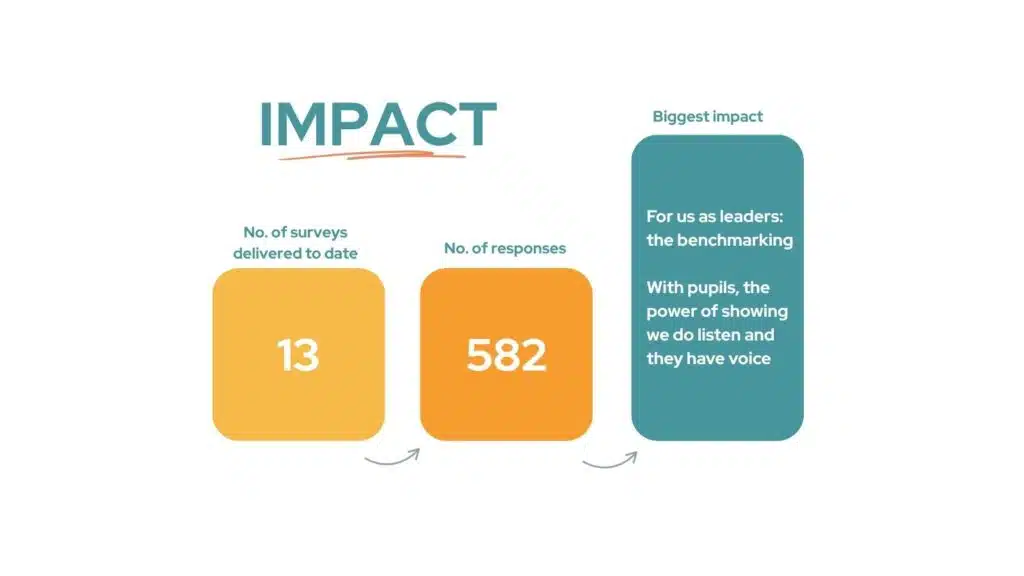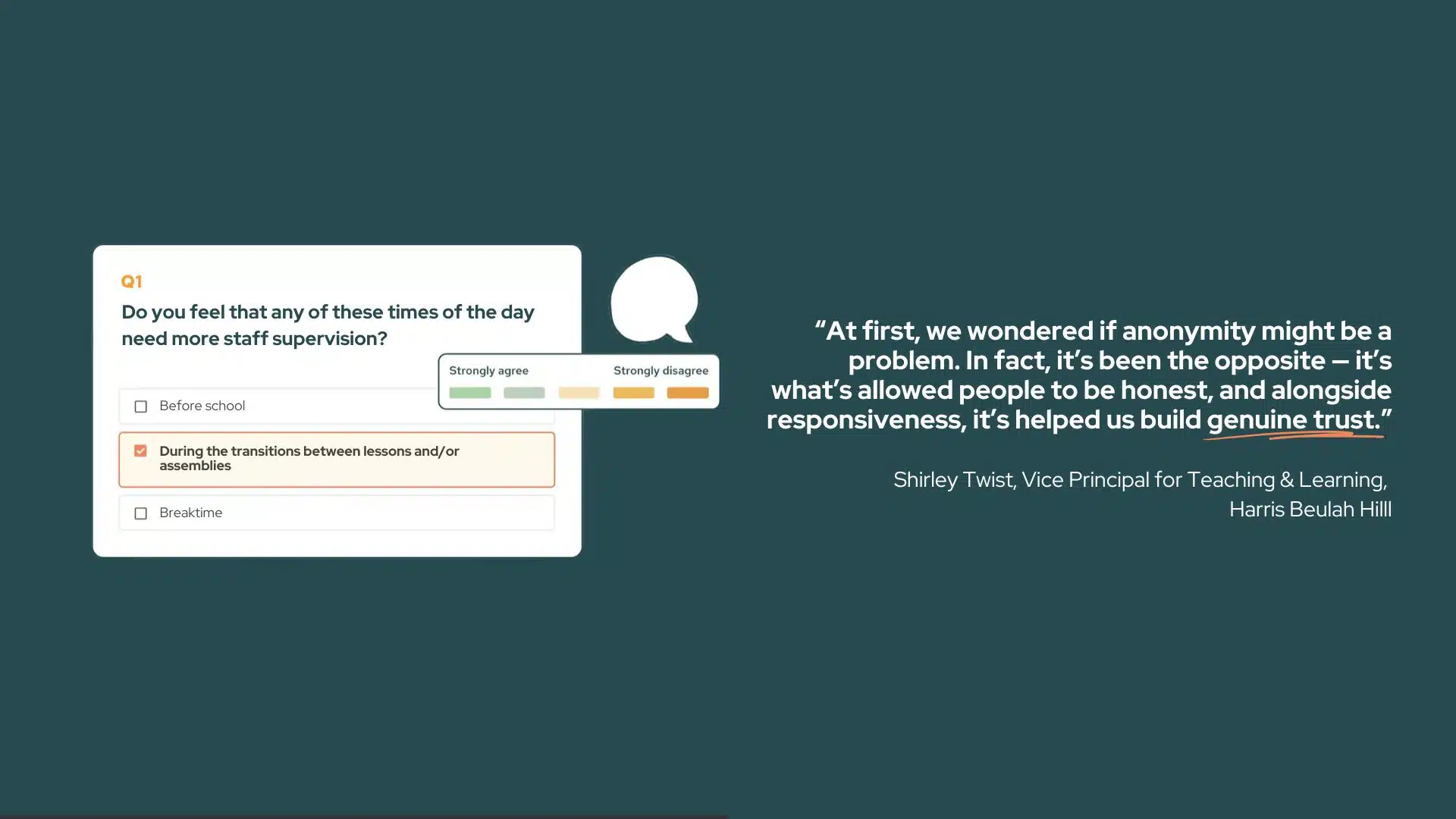“At first, we wondered if anonymity might be a problem. In fact, it’s been the opposite — it’s what’s allowed people to be honest, and alongside responsiveness, it’s helped us build genuine trust.”
Shirley Twist, Vice Principal for Teaching & Learning, Harris Beulah Hill
About Harris Beulah Hill
Harris Beulah Hill is a comprehensive, co-educational and non-denominational secondary school, situated in Norwood, South London. It is part of the Harris MAT although joined School Surveys as an individual decision, based on hearing about the service from other schools.

From Forms to a purpose built platform
When the school first explored ways to collect feedback, they used Microsoft Forms. While it worked, the leadership team soon realised the limits: surveys required more design time, results lacked depth, and comparative data wasn’t available.
Vice Principal Shirley Twist, who oversees teaching and learning, led the transition to School Surveys, inspired by recommendations from Teacher Tapp and other Harris schools. For Shirley, the value was clear: expertly designed questions, rich comparative benchmarks, and a system that gave leaders a sharper picture of staff, student, and parent perspectives.
“The cost is a drop in the ocean when you think you don’t have to design the surveys yourself, and the questions are so good.”
Anonymity as a strength, not a risk
One of the biggest initial hesitations was anonymity. Both Shirley and the Principal wondered whether moving away from the traceability of Forms might pose a risk in terms of possible disclosures. These fears have proved unfounded; Shirley acknowledges the need for caution around this, just as with student surveying, but reflects that really the leaders already have a pretty good understanding of their staff and there hasn’t been anything alarming emerge.
“People use the surveys in good faith,” Shirley reflects. “They have been thoughtful and constructive. In fact, the anonymity seems to free the staff up to be more positive, not less.”
This openness has given leaders a truer picture of issues that matter, from wellbeing to workload. And identifying these pinch points provides a meaningful basis for thinking about what can be done and working to make improvements.
The platform gives leaders the choice as to whether they prefer to circulate the survey links themselves, or get School Surveys to do this for them. For Harris Beulah Hill, so far they have chosen to manage the staff survey notifications themselves. As Shirley explains, “For me, I like to talk to them personally beforehand and link it into what we are working on.” For example, questions about the CPD programme are closely related to the themes they are working on – most recently, building stamina and creativity in writing. Digging into the results helped Shirley understand the issues and decide what to target next.
Engaging parents and students
The impact of surveys has extended beyond staff. For parents, the school experimented with different approaches: QR codes at parents’ evenings saw limited uptake, but targeted emails and personalised reminders generated much better engagement. For students, allocating dedicated time — such as tutor sessions or computer lab slots — proved essential, especially since they’ve not gone down the devices in class route.
And students have experienced the benefits of their engagement: for example, their requests for safer toilets led to timetabled staff supervision, prefect duties and a key stage separation – and the students were like, “Oh, okay, so they do listen.”
The lesson? Surveys work if you create the conditions for people to take part, and if you show them their voices matter.
Evidence in context
The comparative data has also strengthened the school’s narrative when presenting to external stakeholders such as the Harris Federation or Ofsted. By benchmarking against similar schools nationally, leaders can contextualise their results and reassure staff and governors that their performance stands up in a wider context.
Being able to report to the Trust that 95% of staff feel positive about the school’s CPD programme, with 100% agreeing that it is coherent, is incredibly powerful in Shirley’s view, particularly when these results can be set against responses from staff in other similar schools.
“For us, the most powerful thing about School Surveys is the benchmarking data – it’s invaluable to have that comparison to similar schools.”




